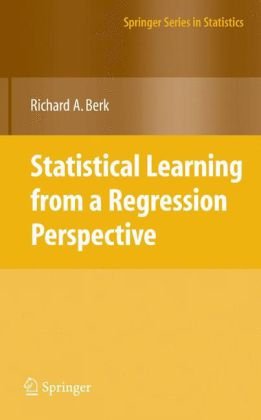

Most ebook files are in PDF format, so you can easily read them using various software such as Foxit Reader or directly on the Google Chrome browser.
Some ebook files are released by publishers in other formats such as .awz, .mobi, .epub, .fb2, etc. You may need to install specific software to read these formats on mobile/PC, such as Calibre.
Please read the tutorial at this link: https://ebookbell.com/faq
We offer FREE conversion to the popular formats you request; however, this may take some time. Therefore, right after payment, please email us, and we will try to provide the service as quickly as possible.
For some exceptional file formats or broken links (if any), please refrain from opening any disputes. Instead, email us first, and we will try to assist within a maximum of 6 hours.
EbookBell Team

4.0
26 reviewsStatistical Learning from a Regression Perspective considers statistical learning applications when interest centers on the conditional distribution of the response variable, given a set of predictors, and when it is important to characterize how the predictors are related to the response. As a first approximation, this is can be seen as an extension of nonparametric regression. Among the statistical learning procedures examined are bagging, random forests, boosting, and support vector machines. Response variables may be quantitative or categorical.
Real applications are emphasized, especially those with practical implications. One important theme is the need to explicitly take into account asymmetric costs in the fitting process. For example, in some situations false positives may be far less costly than false negatives. Another important theme is to not automatically cede modeling decisions to a fitting algorithm. In many settings, subject-matter knowledge should trump formal fitting criteria. Yet another important theme is to appreciate the limitation of one’s data and not apply statistical learning procedures that require more than the data can provide.
The material is written for graduate students in the social and life sciences and for researchers who want to apply statistical learning procedures to scientific and policy problems. Intuitive explanations and visual representations are prominent. All of the analyses included are done in R.
Richard Berk is Distinguished Professor of Statistics Emeritus from the Department of Statistics at UCLA and currently a Professor at the University of Pennsylvania in the Department of Statistics and in the Department of Criminology. He is an elected fellow of the American Statistical Association and the American Association for the Advancement of Science and has served in a professional capacity with a number of organizations such as the Committee on Applied and Theoretical Statistics for the National Research Council and the Board of Directors of the Social Science Research Council. His research has ranged across a variety of applications in the social and natural sciences.